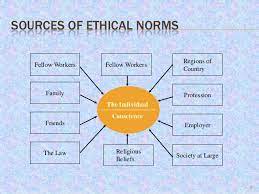
Thematic focus - Ethics is an effort to direct human conduct and it helps individual in leading good life by applying moral principles. Ethics is elucidated as well based standards of right and wrong that prescribe what humans ought to do, usually in terms of rights, obligations, benefits to society, fairness, or specific virtues. In present scenario, ethics in governance are attracting attention of researchers, people who talk of good governance. The spread of democracy in various countries of the world has highlighted the issue of ethics in governance. The Overall purpose of ethics is to ensure good governance with prime concern for ethical principles, practices and behaviour. Governance is described as the way an organization takes itself and the processes and structure that are used to realize its goals. Governance is also crucially concerned with how organizations relate to each other, how they relate to citizens and the way in which citizens are given a voice. The essential duty of governance is to effectively and equitably implement what is called the social contract. Changeover to liberalization and economic reforms, and to new types of managerial set-ups is a complex and difficult task which demands a highly competent, well informed and caring administration.
The advancement of ethics and moral values in good governance suggests legality of government action, rationality in policy and decision making, evolving a sense of responsibility, ensuring accountability, strengthening work commitment, creating excellence, facilitating spirit of individual and organizational goals, developing responsiveness, showing compassion, protecting the national interests, protecting the spirit of justice, bringing transparency and elevating integrity. Actually, these values expect the controllers of ancient India to be the civil servants of modern India that are guided by a spirit of service.
Integrity in the public administration is an important condition for the effective functioning of the state, for ensuring public trust in the government, and for creating conditions for sustainable social and economic development. Ethics training for public officials is one of the instruments for building integrity in state institutions and ensuring good quality public governance. The UN Convention against Corruption (UNCAC) requires that the State Parties "promote education and training programmes to enable them [public officials] to meet the requirements for the correct, honourable and proper performance of public functions and that provide them with specialized and appropriate training to enhance their awareness of the risks of corruption inherent in the performance of their functions.
Rationale
Ethics in Administration refers to moral standards in public service. Today we are challenged by a growing concern about the morality of public institutions including concerns about those who use organizations for personal advantage and the damage organizations can inflict on society. Due to declining ethical standards in Governance a large number of maladies can be found. As a result corruption, unfair practices, favoritism etc. have become a part of the administrative processes. This has lead to serious erosion of the credibility of the instruments of Governance which needs to be attended to.
Aim
To strengthening ethical values in administration for enhancing public trust in Institutions of governance and improve Quality of Service and Governance laid on a strong foundation of Ethics.
Objectives
At the end of the training Programme the participants will be able to;
Contents
Level of participants
Officers of All India Service, officers working under the Central Staffing Scheme and officers of Central Secretariat Service (CSS)
Pedagogy
The course is designed to be very participatory in nature where participants will share their experiences for a learning outcome
Lectures • Discussions • Case studies• Experiential learning, Group work in order to ensure maximum participation
It can be delivered both online and face to face
|
Day/Date |
Time |
Topic |
Speaker |
|
Monday
|
0930-1000 |
Registration |
|
|
1000-11.15 |
Briefing and Experience Sharing Inaugural Session |
|
|
|
1145-1300 |
Ethics in Public Administration: Need & Importance |
|
|
|
1300-1400 |
Lunch Break |
|
|
|
1400-1530 |
Good Governance- Ethical Dimensions |
|
|
|
1545-1700 |
Ethics and Values in Indian Culture |
|
|
|
|
1700-1730 |
Group Formation |
|
|
Tuesday
|
1000-1130 |
Administrative Ethics and Accountability |
|
|
1145-1300 |
Personal Values in the Workplace |
|
|
|
1300-1400 |
Lunch Break |
|
|
|
1400-1530 |
Professional Ethics |
|
|
|
1545-1700 |
Corruption and Misuse of Authority |
|
|
|
1700- |
Group Work |
|
|
|
Wednesday
|
1000-1130 |
Natural Justice and Fairness |
|
|
1145-1300 |
Public Interest: Exercise of Discretionary Power |
|
|
|
1300-1400 |
Lunch |
|
|
|
1400-1530 |
Promoting Ethical Leadership |
|
|
|
1545-1700 |
Ethical Dilemma and Decision Making |
|
|
|
1700- |
Group Work |
|
|
|
Thursday
|
1000-1700 |
Field visit |
|
|
1700- |
Group Work |
|
|
|
Friday
|
1000-1115 |
Whistle blower and Protection |
|
|
1115-1300 |
Group presentation |
|
|
|
1300-1400 |
Lunch Break |
|
|
|
1400-1530 |
Group presentation |
|
|
|
1545-1700 |
Feedback, Evaluation and Valedictory Session |
|
Resource Material